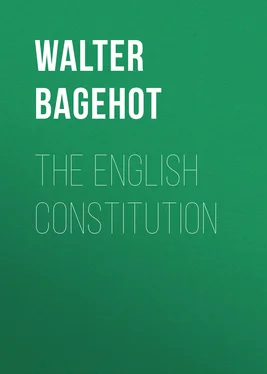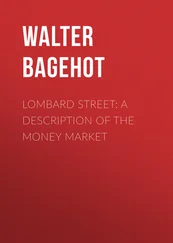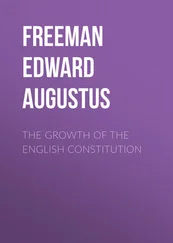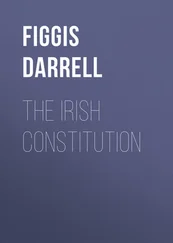Walter Bagehot - The English Constitution
Здесь есть возможность читать онлайн «Walter Bagehot - The English Constitution» — ознакомительный отрывок электронной книги совершенно бесплатно, а после прочтения отрывка купить полную версию. В некоторых случаях можно слушать аудио, скачать через торрент в формате fb2 и присутствует краткое содержание. Жанр: foreign_prose, История, foreign_edu, foreign_antique, на английском языке. Описание произведения, (предисловие) а так же отзывы посетителей доступны на портале библиотеки ЛибКат.
- Название:The English Constitution
- Автор:
- Жанр:
- Год:неизвестен
- ISBN:нет данных
- Рейтинг книги:4 / 5. Голосов: 1
-
Избранное:Добавить в избранное
- Отзывы:
-
Ваша оценка:
- 80
- 1
- 2
- 3
- 4
- 5
The English Constitution: краткое содержание, описание и аннотация
Предлагаем к чтению аннотацию, описание, краткое содержание или предисловие (зависит от того, что написал сам автор книги «The English Constitution»). Если вы не нашли необходимую информацию о книге — напишите в комментариях, мы постараемся отыскать её.
The English Constitution — читать онлайн ознакомительный отрывок
Ниже представлен текст книги, разбитый по страницам. Система сохранения места последней прочитанной страницы, позволяет с удобством читать онлайн бесплатно книгу «The English Constitution», без необходимости каждый раз заново искать на чём Вы остановились. Поставьте закладку, и сможете в любой момент перейти на страницу, на которой закончили чтение.
Интервал:
Закладка:
After saying that the division of the legislature and the executive in Presidential governments weakens the legislative power, it may seem a contradiction to say that it also weakens the executive power. But it is not a contradiction. The division weakens the whole aggregate force of Government—the entire imperial power; and therefore it weakens both its halves. The executive is weakened in a very plain way. In England a strong Cabinet can obtain the concurrence of the legislature in all acts which facilitate its administration; it is itself, so to say, the legislature. But a President may be hampered by the Parliament, and is likely to be hampered. The natural tendency of the members of every legislature is to make themselves conspicuous. They wish to gratify an ambition laudable or blamable; they wish to promote the measures they think best for the public welfare; they wish to make their WILL felt in great affairs. All these mixed motives urge them to oppose the executive. They are embodying the purposes of others if they aid; they are advancing their own opinions if they defeat: they are first if they vanquish; they are auxiliaries if they support. The weakness of the American executive used to be the great theme of all critics before the Confederate rebellion. Congress and committees of Congress of course impeded the executive when there was no coercive public sentiment to check and rule them.
But the Presidential system not only gives the executive power an antagonist in the legislative power, and so makes it weaker; it also enfeebles it by impairing its intrinsic quality. A Cabinet is elected by a legislature; and when that legislature is composed of fit persons, that mode of electing the executive is the very best. It is a case of secondary election, under the only conditions in which secondary election is preferable to primary. Generally speaking, in an electioneering country (I mean in a country full of political life, and used to the manipulation of popular institutions), the election of candidates to elect candidates is a farce. The Electoral College of America is so. It was intended that the deputies when assembled should exercise a real discretion, and by independent choice select the President. But the primary electors take too much interest. They only elect a deputy to vote for Mr. Lincoln or Mr. Breckenridge, and the deputy only takes a ticket, and drops that ticket in an urn. He never chooses or thinks of choosing. He is but a messenger—a transmitter; the real decision is in those who choose him—who chose him because they knew what he would do. It is true that the British House of Commons is subject to the same influences. Members are mostly, perhaps, elected because they will vote for a particular Ministry, rather than for purely legislative reasons. But—and here is the capital distinction—the functions of the House of Commons are important and CONTINUOUS. It does not, like the Electoral College in the United States, separate when it has elected its ruler; it watches, legislates, seats and unseats ministries, from day to day. Accordingly it is a REAL electoral body. The Parliament of 1857, which, more than any other Parliament of late years, was a Parliament elected to support a particular premier—which was chosen, as Americans might say, upon the "Palmerston ticket"—before it had been in existence two years, dethroned Lord Palmerston. Though selected in the interest of a particular Ministry, it in fact destroyed that Ministry. A good Parliament, too, is a capital choosing body. If it is fit to make laws for a country, its majority ought to represent the general average intelligence of that country; its various members ought to represent the various special interests, special opinions, special prejudices, to be found in that community. There ought to be an advocate for every particular sect, and a vast neutral body of no sect—homogeneous and judicial, like the nation itself. Such a body, when possible, is the best selector of executives that can be imagined. It is full of political activity; it is close to political life; it feels the responsibility of affairs which are brought as it were to its threshold; it has as much intelligence as the society in question chances to contain. It is, what Washington and Hamilton strove to create, an electoral college of the picked men of the nation. The best mode of appreciating its advantages is to look at the alternative. The competing constituency is the nation itself, and this is, according to theory and experience, in all but the rarest cases, a bad constituency. Mr. Lincoln, at his second election, being elected when all the Federal States had set their united hearts on one single object, was voluntarily reelected by an actually choosing nation. He embodied the object in which every one was absorbed. But this is almost the only Presidential election of which so much can be said. In almost all cases the President is chosen by a machinery of caucuses and combinations too complicated to be perfectly known, and too familiar to require description. He is not the choice of the nation, he is the choice of the wire-pullers. A very large constituency in quiet times is the necessary, almost the legitimate, subject of electioneering management: a man cannot know that he does not throw his vote away except he votes as part of some great organisation; and if he votes as a part, he abdicates his electoral function in favour of the managers of that association. The nation, even if it chose for itself, would, in some degree, be an unskilled body; but when it does not choose for itself, but only as latent agitators wish, it is like a large, lazy man, with a small vicious mind,—it moves slowly and heavily, but it moves at the bidding of a bad intention; it "means LITTLE, but it means that little ILL."
Конец ознакомительного фрагмента.
Текст предоставлен ООО «ЛитРес».
Прочитайте эту книгу целиком, на ЛитРес.
Безопасно оплатить книгу можно банковской картой Visa, MasterCard, Maestro, со счета мобильного телефона, с платежного терминала, в салоне МТС или Связной, через PayPal, WebMoney, Яндекс.Деньги, QIWI Кошелек, бонусными картами или другим удобным Вам способом.
1
It is said that at the end of the Cabinet which agreed to propose a fixed duty on corn, Lord Melbourne put his back to the door and said, "Now is it to lower the price of corn or isn't it? It is not much matter which we say, but mind, we must all say THE SAME." This is the most graphic story of a Cabinet I ever heard, but I cannot vouch for its truth. Lord Melbourne's is a character about which men make stories.
2
It is worth observing that even during the short existence of the Confederate Government these evils distinctly showed themselves. Almost the last incident at the Richmond Congress was an angry financial correspondence with Jefferson Davis.
3
I leave this passage to stand as it was written, just after the assassination of Mr. Lincoln, and when every one said Mr. Johnson would be very hostile to the South.
Интервал:
Закладка:
Похожие книги на «The English Constitution»
Представляем Вашему вниманию похожие книги на «The English Constitution» списком для выбора. Мы отобрали схожую по названию и смыслу литературу в надежде предоставить читателям больше вариантов отыскать новые, интересные, ещё непрочитанные произведения.
Обсуждение, отзывы о книге «The English Constitution» и просто собственные мнения читателей. Оставьте ваши комментарии, напишите, что Вы думаете о произведении, его смысле или главных героях. Укажите что конкретно понравилось, а что нет, и почему Вы так считаете.












